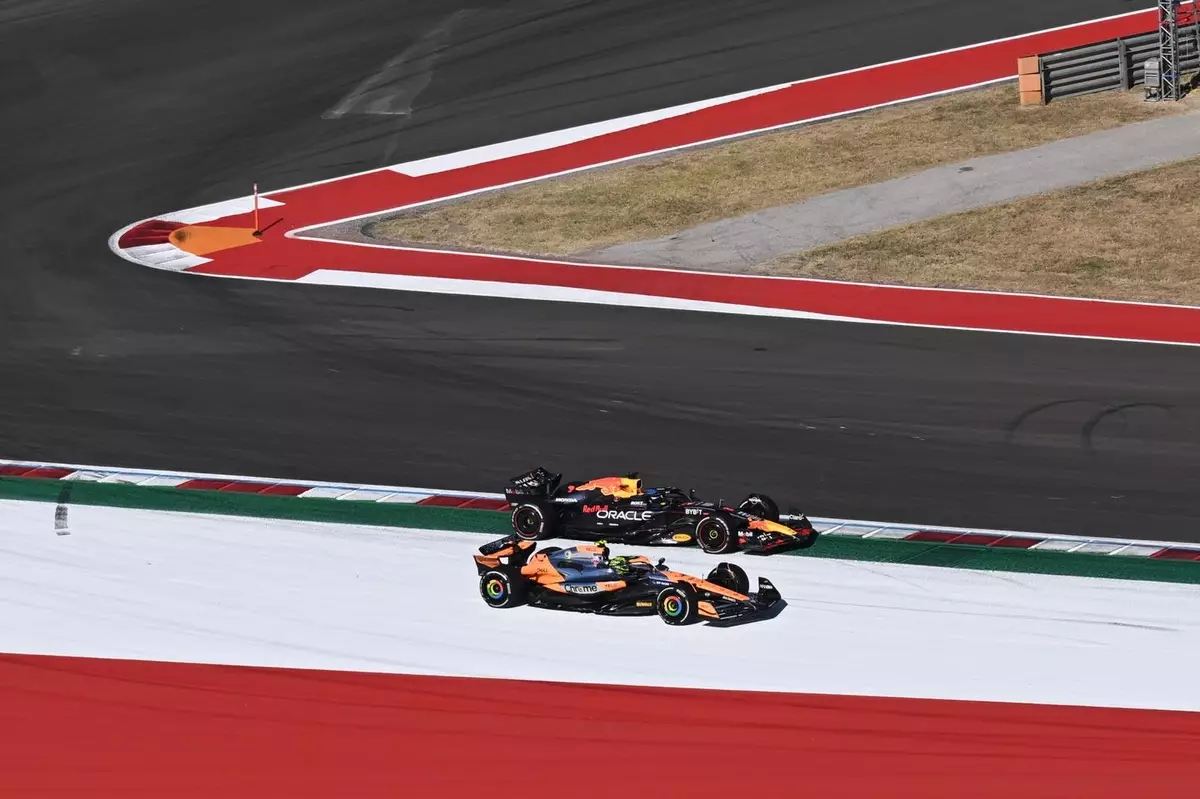The world of Formula 1 is often abuzz with controversy and debate, and the recent incident involving Lando Norris during the United States Grand Prix has only added fuel to the fire. After an intense battle with reigning champion Max Verstappen, Norris found himself on the receiving end of a five-second penalty. This ruling came into play when Norris overtook Verstappen off the track in the closing stages of the race, a maneuver that sparked numerous discussions about the definition of fairness and the boundaries of racing tactics.
At first glance, the penalty might appear reasonable; after all, rules exist to maintain competitive integrity. However, upon deeper analysis, the question arises: was this penalty justified, and can new evidence influence its validity? The answer to this question matters not just for Norris and McLaren but for the integrity of racing in general.
Following the penalty, McLaren has engaged the right to request a review of Norris’s sanction, a strategic move that underscores their commitment to racing fairness. According to the FIA’s International Sporting Code, a right of review can be initiated if new, substantial, and relevant evidence comes to light post-decision. This procedural aspect is vital as it allows teams to challenge decisions that may have been made without all pertinent information.
The upcoming hearing is scheduled for 14:30 Mexico City time on the eve of the Mexican Grand Prix. During this hearing, McLaren must present evidence consistent with the criteria outlined by the FIA, creating a pressure-cooker environment with significant implications for the championship dynamics.
At the center of this review process is the definition of “new evidence.” While McLaren’s management, including team principal Andrea Stella, initially expressed doubts about the existence of such evidence, the basis of their appeal could hinge on relevant race footage from Verstappen’s onboard cameras. Much like a previous instance involving Mercedes and Verstappen at the 2021 Brazilian GP, directors can access footage that was previously unavailable at the time of the decision, potentially highlighting discrepancies in the stewards’ ruling.
However, it’s worthwhile to note that although new footage may qualify as “new evidence,” it doesn’t always compel the stewards to amend their original ruling. In the past, the stewards assessed that while Mercedes did present new information, it lacked the significance required to alter their stance. The critical question for McLaren becomes whether they can convincingly argue that the footage in question holds substantial weight in terms of their defense.
If the stewards were to grant McLaren’s request and rescind Norris’s penalty, the consequences would be momentous. The reclassification would not just serve as a vertical boost to Norris’s standings, potentially restoring him to the third position, but would also alter the competitive landscape ahead of the upcoming race. This kind of change could ripple through the championship, dramatically shifting race strategies and psychological dynamics among the main contenders.
Additionally, a successful overturn would also send a powerful message about the nature of competitive fairness in Formula 1. It could prompt teams to look more closely at the stewards’ decisions, scrutinizing potential biases or oversights to maximize their desired outcomes on the track.
As the right of review hearing looms, the scenario serves as an excellent case study of Formula 1’s ongoing battle between stringent regulation and the thrill of competition. Will the stewards honor the appeal made by McLaren, or will they hold firm to the original penalty given to Norris? The outcome will add yet another layer of complexity to an already multifaceted sport.
Ultimately, this incident highlights the delicate balance of passion, regulations, and the human element in racing. As teams like McLaren push for clarity and fairness, it forces the sport to continually reassess its rulings and practices. In a world where split-second decisions can define careers and championships, the importance of such review processes cannot be overstated. The integrity of Formula 1 hangs in the balance, awaiting the stewards’ verdict in what promises to be a thrilling continuation of the 2023 season narrative.


Leave a Reply